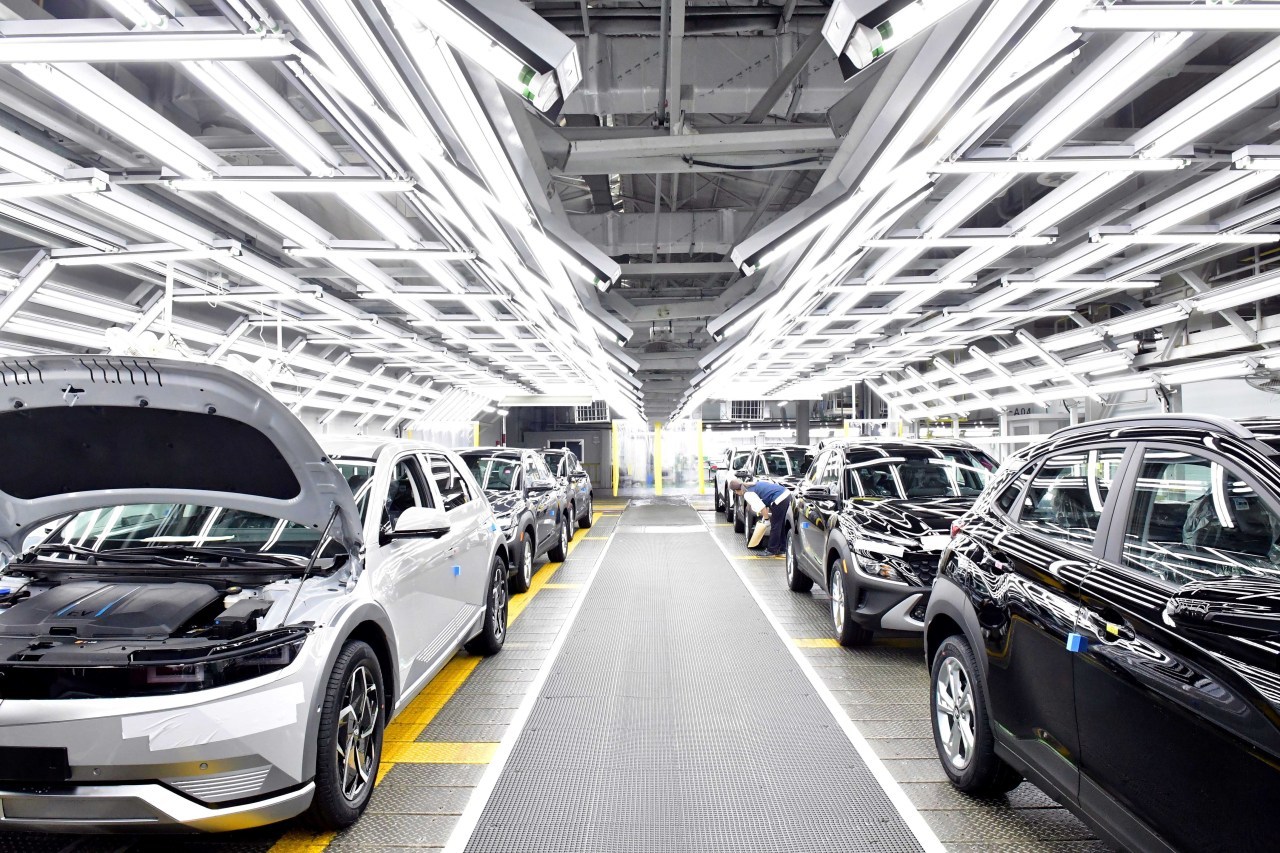 |
Manufacturing line for Ioniq 5 inside Hyundai Motor Group’s Ulsan production plant. (Hyundai Motor Group) |
South Korean carmakers on Thursday said at least 100,000 electric vehicles built here would face disruption in export sales annually under the new US law, which excludes battery-powered vehicles made outside of the US from tax credits. They also urged the South Korean government to revise the current subsidy law and map out temporary measures for local carmakers, such as tax credits.
According to the Korea Automobile Manufacturers Association, of which Hyundai Motor and Kia are members, the new US law would hit hard not only Korean carmakers, but also some 13,000 subcontracted auto parts makers here who are already going through hard times due to a dramatic shift from combustion engine cars to electrified models.
As Hyundai and Kia make all their flagship EV models at domestic plants, they fear losing market competitiveness over the axed subsidies for foreign EV makers.
KAMA emphasized that Korean carmakers have hired over 100,000 US nationals through more than $13 billion in investments there over the past three decades. Korea has also subsidized EVs imported from the US in accordance with the US-Korea Free Trade Agreement.
In May, Hyundai Motor Group signed a $5.5 billion plan to build EV and battery manufacturing facilities in the US state of Georgia –- the first of its kind outside Korea.
“The US Inflation Reduction Act will constrict the South Korean production of EVs, and even negatively impact the country’s future mobility competitiveness and workforce in the EV sector,” said KAMA Chairman Chung Man-ki, adding that the South Korean government should review the current EV subsidy law and reexamine the system to soften the damage to local carmakers.
By Kim Da-sol (
ddd@heraldcorp.com)








